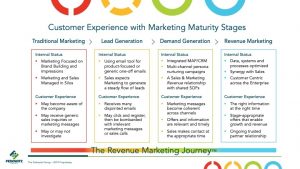Organizations face a great deal of pressure when it comes to making hiring decisions . Selecting a candidate who isn’t the right fit for a position can be a costly mistake in terms of lost time, money, and productivity. Unfortunately, even if a company does make the “right” hire, the new employee might still struggle due to a flawed onboarding process that fails to set them on a path to success .
Given the high stakes of hiring, it makes sense for companies to put a great deal of thought into the way they structure their onboarding experience and training programs. One easy-to-implement approach is to create a new employee mentoring program that assigns new hires a mentor who can guide them through the orientation process.
Benefits of Mentoring New Employees During Onboarding
Networking and Acculturation
One of the most challenging things about being a new employee is walking into an unfamiliar environment filled with unfamiliar people. While the new hire may have spoken extensively with a recruiter or other interviewers, they probably haven’t had much contact with the people they’ll actually be working with on a regular basis. Assigning a mentor to these newcomers not only provides them with an immediate relationship, but also gives them access to that person’s existing network. Mentors can handle introductions and set them on the path to establishing working relationships with fellow team members.
Getting a handle on a new company’s workplace culture can be a difficult process, especially if the employee came from an organization that operated very differently (or was dysfunctional in some way). While they may have an idea of the company’s culture based on interview conversations, there’s no substitute for experience. Early and frequent interactions with a mentor can give them a better idea of what kind of behavior is appropriate and how employees are expected to communicate and collaborate.
Improved Engagement and Retention
The old cliche about never having a second chance to make a first impression remains highly applicable to an organization onboarding a new employee. A 2014 study by BambooHR found that one-third of applicants quit their job within six months of starting it, with many of those respondents citing factors like a lack of recognition, attention, or interaction. This fits squarely with the oft-repeated 2009 Aberdeen Group study which found that 86 percent of respondents believed that new hires made a decision whether or not to leave a company within their first six months.
An experienced mentor can help show new hires what development opportunities exist within the company and provide the support they need to get off to a successful start. This helps employees feel more secure and valued, which makes them less likely to become frustrated and disengaged in the short term and less likely to seek new opportunities elsewhere in the long term. Mentors are also a good source of feedback, which helps new hires get a sense of how well they’re doing in their new role and learn what they still need to do in order to improve. Maintaining communication about expectations, performance, and concerns lets them know the organization is committed to their success.
Better Role Clarity
Whether it’s a vague job description or an interview process that is short on firm details, many employees go into a new job without a clear understanding of what their role will actually entail. Unfortunately, many onboarding processes focus on the general details about working for a company (HR policies, benefits sign-ups, vacation policies, etc) and don’t provide much information about what the company expects of them. Even if they understand the core responsibilities of their position, there may be a number of situations in which it’s not clear whether they should take ownership of something or if they should leave it to someone else.
A mentor can help to clarify a new hire’s roles and responsibilities. Ideally, the mentor should have experience in the same position, which allows them to convey information about expectations that might not be included in any formal description of the job. This is especially important in leadership positions where effective delegation, promoting accountability, and other management skills are critical to producing results. Mentors can show new hires where they need to focus their efforts and clearly identify areas that are outside their control, which helps them to be more effective in their role.
Faster Road to Productivity
While conventional wisdom among HR professionals says that the onboarding process should last 90 to 100 days, most companies fall well short of this mark with an onboarding period that lasts a month or less. Shockingly, according to a 2017 CareerBuilder survey, one in four employees reported that their onboarding process consisted of a single day. But whether formal onboarding lasts for a few days or a few months, new employees usually aren’t ready to be just as productive as existing employees when the term is over. In fact, research has shown that it takes up to one to two years for them to become fully productive in their new role.
Incorporating mentors in the onboarding process can set new hires on a faster path to productivity. Much of the vital, informal learning that occurs over the first year or two with a new company can be accelerated with a mentor available to guide them along the way. Assigning a mentor to a new hire is also a good way of informally extending the onboarding process beyond the typical three-month timespan, which helps to provide support when new challenges related to the position emerge several months down the line.
While mentoring programs are often utilized as a leadership development strategy for existing employees, incorporating mentors into the onboarding process can help smooth a new hire’s transition into an organization. With a mentor’s guidance, they can learn about the company’s culture and expectations first hand. Mentors can also be their first step toward establishing relationships that will allow them to build trust and collaborate more effectively. While mentors should not be a substitute for the onboarding process, implementing mentoring during onboarding can help set new employees up for sustainable success.
Business & Finance Articles on Business 2 Community
(107)
Report Post






